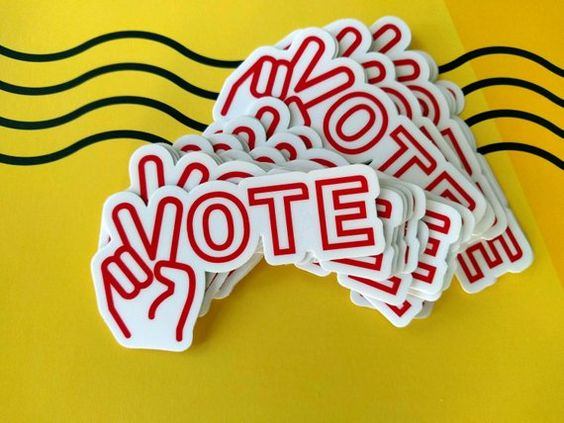First — here are tons o’ resources from media organizations and partners:
- Texas Tribune: Voting in Texas on Super Tuesday: Everything you need to know
- The Lawyers Committee for Civil Rights: Texas Election Information
- Progress Texas Institute: GoVoteTexas.org
- League of Women Voters of Texas: Election information for March primaries
- Hobby School of Public Affairs: Texas 2020 Primary Elections 101
- Texas Progressive Action Network/Our Vote Texas: Voter Hub
- Move Texas: WTF is a primary??
Why should I bother voting in a primary?
Voting has begun in the Texas primary elections and participating in these primaries – regardless of party – is hugely important. Not only are you selecting the nominees who will be running in the general election but in a large number of races where the electorate skews heavily Republican or Democratic – the winner of the primary will almost certainly end up being the winner.
When can I vote?
Voting for the Texas primaries begins Tuesday, 2/18 and ends on Friday, 2/28. Election Day is Tuesday, 3/3.
I tried to vote but….
If you run into ANY kind of problems when going to the polls or if you just have questions – call the Election Protection hotline at 866-OUR-VOTE — or shoot us an email at texas@commoncause.org.
Do I need to read all this…Can I just watch a video?
Yep, you can actually! Texas Rising made a fantastic explainer video that will answer just about all your questions in just a bit over 8 minutes.
Where can I check to see if I’m registered to vote? Best place is this page on the Secretary of State’s website: https://www.sos.state.tx.us/elections/voter/reqvr.shtml
What’s on my ballot? Pop over to www.vote411.org/ — you’ll enter your address and get a personalized voter guide including candidates and their responses to a range of questions, courtesy of our friends at the League of Women Voters.
How does Early Voting work?
Any voter is eligible for Early Voting in person. Early Voting begins seventeen days before the election and ends four days before Election Day.
Where do I vote?
Best place to find your polling site is the Secretary of State’s polling place locator: https://teamrv-mvp.sos.texas.gov/MVP/mvp.do
You can also find that information on your county website – usually on an “Elections” page.
Who can vote in the primaries?
The League of Women Voters of Texas has a great explainer for this:
How do I vote on Election Day?
How to vote on Election Day in the Texas Primaries
How do I register to vote? Some states allow registration all the way up until Election Day – but not Texas. For us, it’s too late to register to be able to vote in this primary – BUT – as long as you’re thinking about it, go register now and you’ll be able to vote in the upcoming runoff and the massively important November general election.
What kind of identification do I need?
If a voter has a valid photo identification, he/she must present it at the polling place in order to vote.
Acceptable forms of photo ID include:
- Driver’s License issued by Texas Department of Public Safety (DPS);
- Personal Identification Card issued by DPS;
- Election Identification Certificate (can apply at no-cost at the Department of Public Safety);
- US Military Identification Card with photo;
- US Citizenship Certificate with photo;
- US Passport;
- License to Carry or Concealed Handgun License.
Forms of photo ID must either not be expired or must have expired no more than four years prior to election. If you are older than 70, your ID may be expired for any amount of time.
However, if the voter has a reasonable difficulty in obtaining one of the photo IDs listed above, he/she can present alternative documentation (such as a voter registration certificate, utility bill, bank statement, paycheck, or any government document with the voter’s name and address) and sign a document stating that he/she has a reasonable difficulty in obtaining photo ID. If the voter presents alternative documentation and signs the reasonable difficulty document, he/she must be given a regular (not provisional) ballot.
While election officials may ask the voter if he/she has an accepted photo ID, election officials cannot question or challenge voters concerning the voter’s lack of that ID. The reasonableness of a voter’s difficulty in obtaining photo ID cannot be questioned by election officials.
Note: The address on either the photo ID or the alternative documentation does not need to match the address on the voter registration list.
